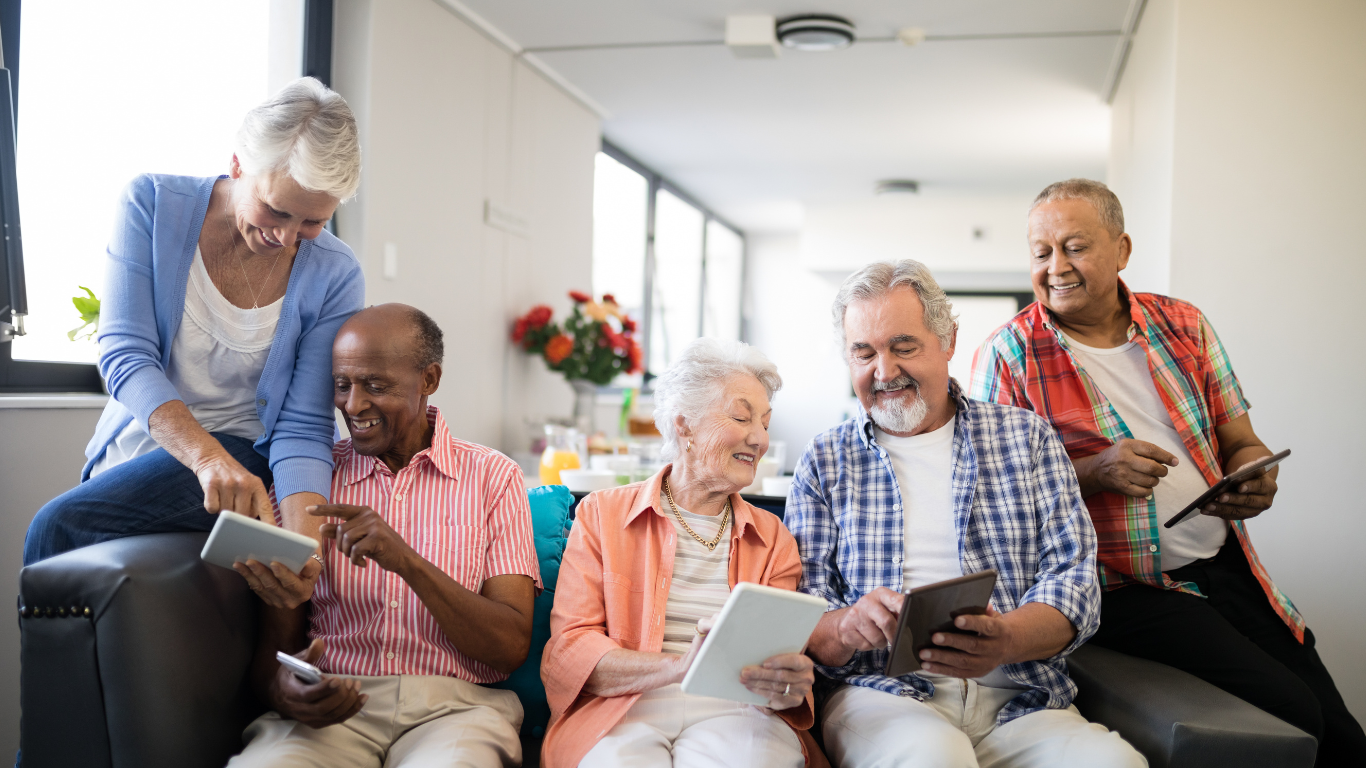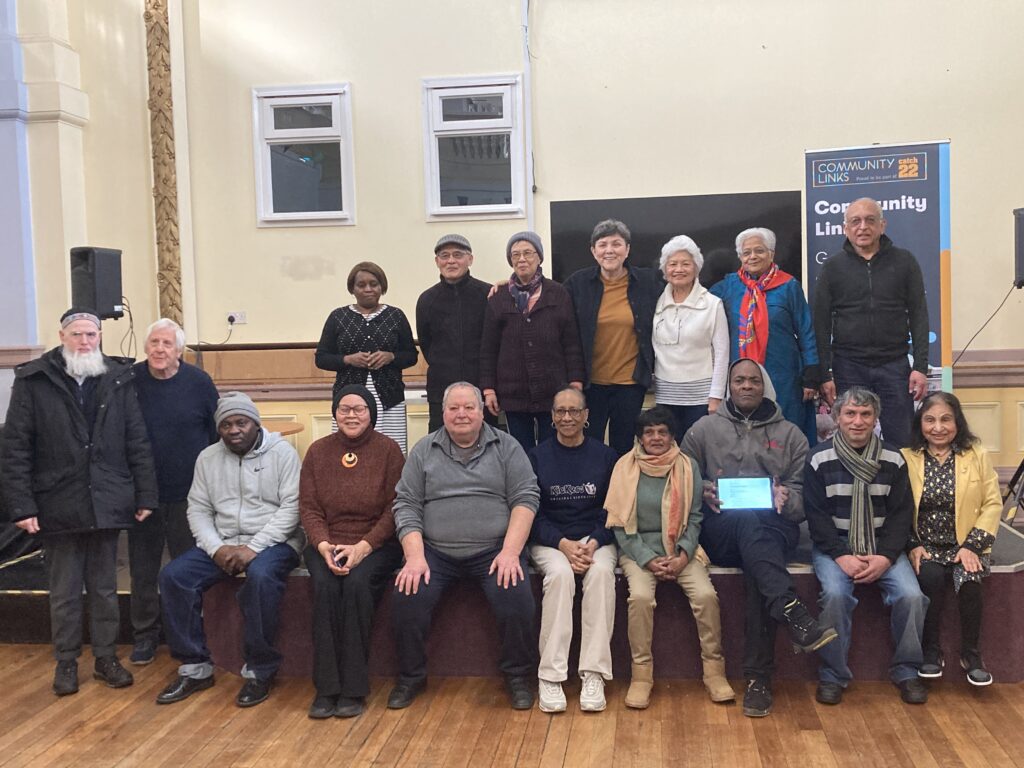
We empower people with digital skills that unlock equal access to services – creating social impact across health, education, communities and the economy while delivering measurable social value.
The impact begins with the individual but extends outward – typically creating a 3:1 impact ratio. Therefore one person’s progress positively influences at least three others, including family, friends, and the wider community. This ripple effect delivers measurable returns and supports corporate ESG and social impact goals.

Digitally confident older adults can quickly arrange informal childcare through messaging, helping working-age relatives – especially women – stay in or return to work. With full-time childcare averaging £12,425 a year in England, this support has real economic value. Graduates also use digital skills to help manage family finances and benefits, easing financial pressure and reducing reliance on services.
Learners share what they’ve gained – helping friends avoid scams (with fraud costing older victims over £4,000 each on average), set up online access, or register for healthcare. This informal peer support spreads digital confidence at no extra cost and builds local resilience. Age UK links digital inclusion to reduced loneliness – a public health risk comparable with smoking.
Digital skills reconnect people with civic life – from volunteering and local events to accessing services and taking part in local democracy. This boosts inclusion, relieves pressure on public services, and strengthens the voluntary sector. With volunteering alone worth £17.8 billion/year to the UK economy, this impact is both social and economic.
Our digital literacy and social inclusion programmes focus on social impact. Businesses that prioritise meaningful social initiatives don’t just do good, they also do well

Digital inclusion doesn’t stop at the individual – it builds stronger, fairer communities. From access to essential services to better health, education, employment, and civic participation, digital confidence lays the foundation for long-term social and economic wellbeing.


“The impact it’s had on me was just finding myself at that time, my self-worth. If someone can speak to me I don’t feel left out and that I’m nothing. I feel confident to start over again.”

“Since I came and was given the tablet, I was able to go and get all my HMRC stuff on which I got a £1600 payback and I was able to do my NHS patient thing online.”

“It’s going to happen so you can either drop behind or gain digital skills. It’s the way it’s laid out here. All credit to the teachers, it’s not difficult.”
Improved access to online health services
Improved access to government and local authority services and resources online
Ability to bank and purchase goods and services online
Increased access to paid and unpaid employment opportunities online
Increased ability to communicate with friends and family online
Better access to online mental health and wellbeing resources and services
Put the ‘S’ in your CSR and ESG goals by sponsoring a programme and work towards a common future by committing to the United Nations’ sustainability goals.
